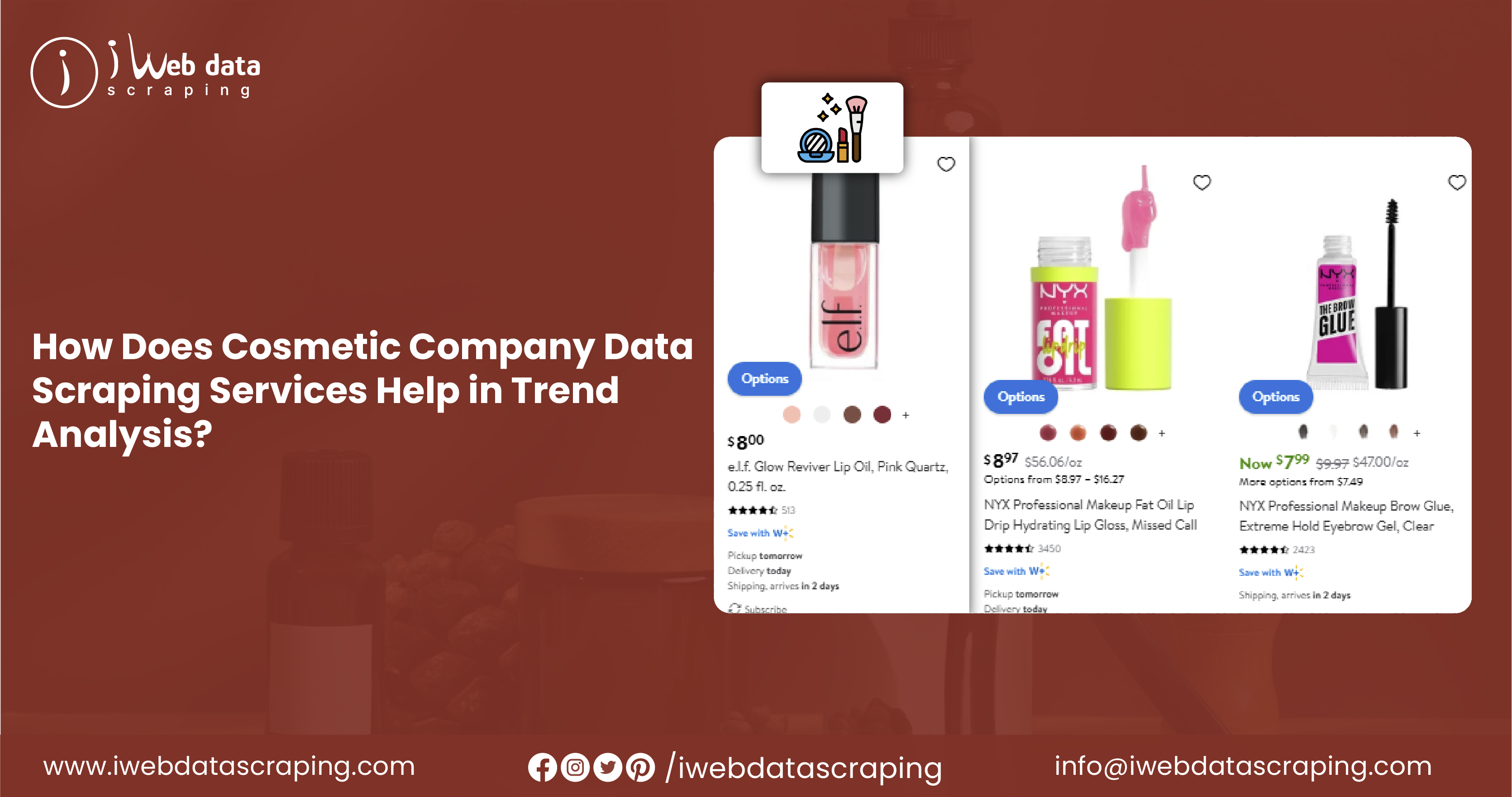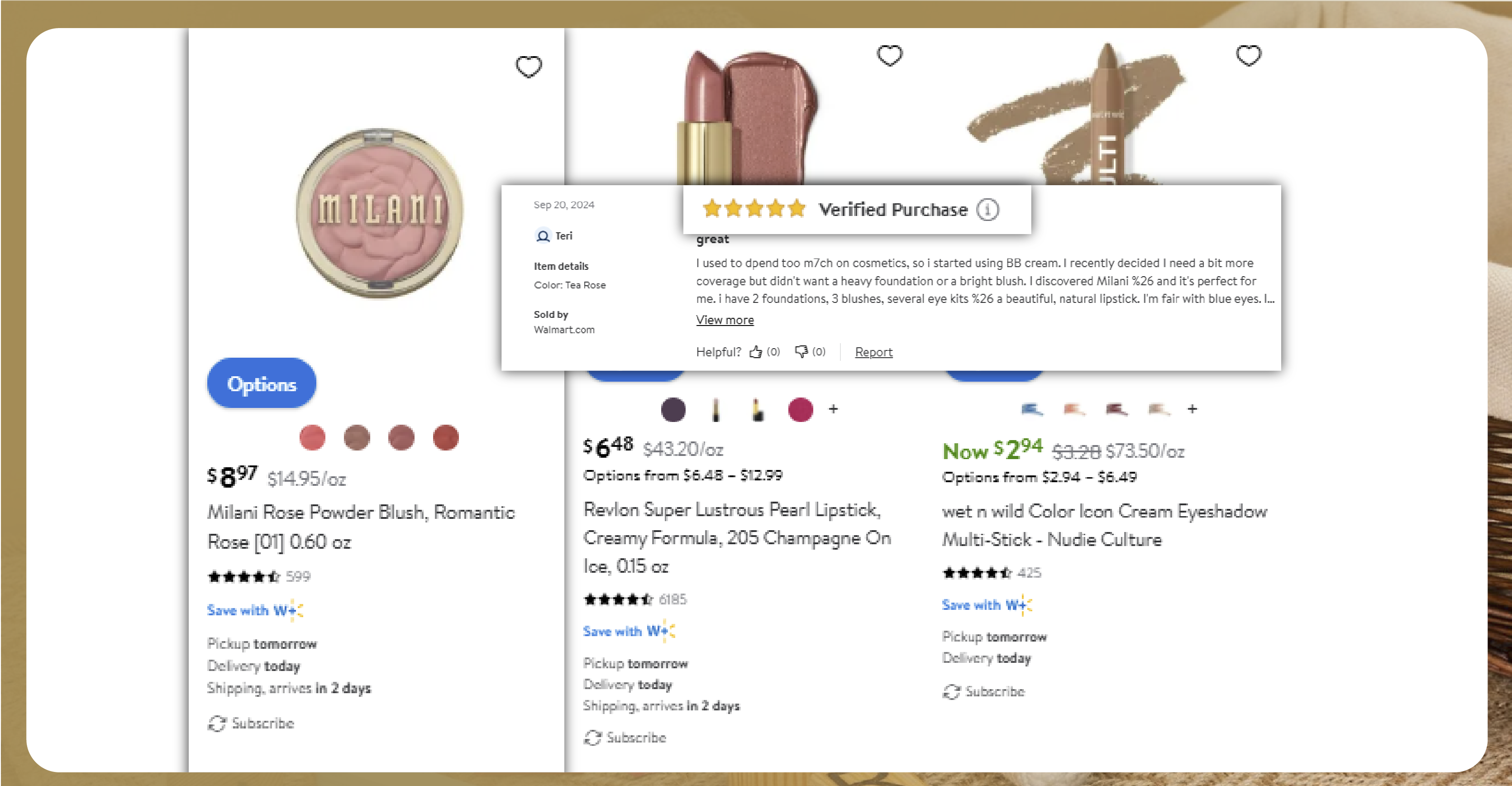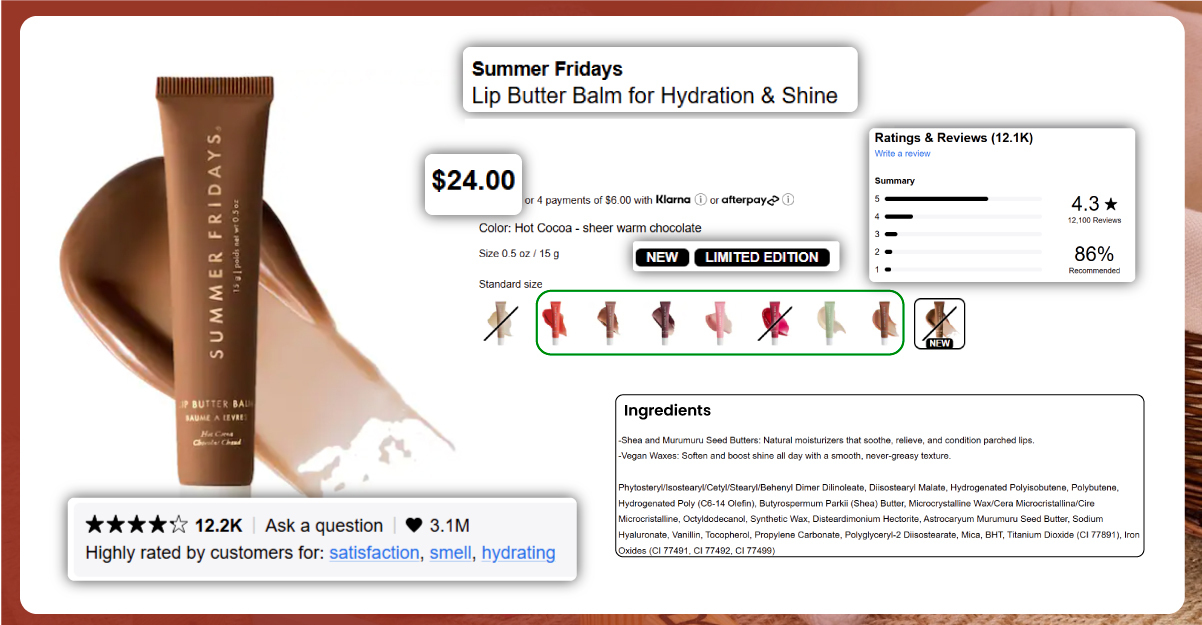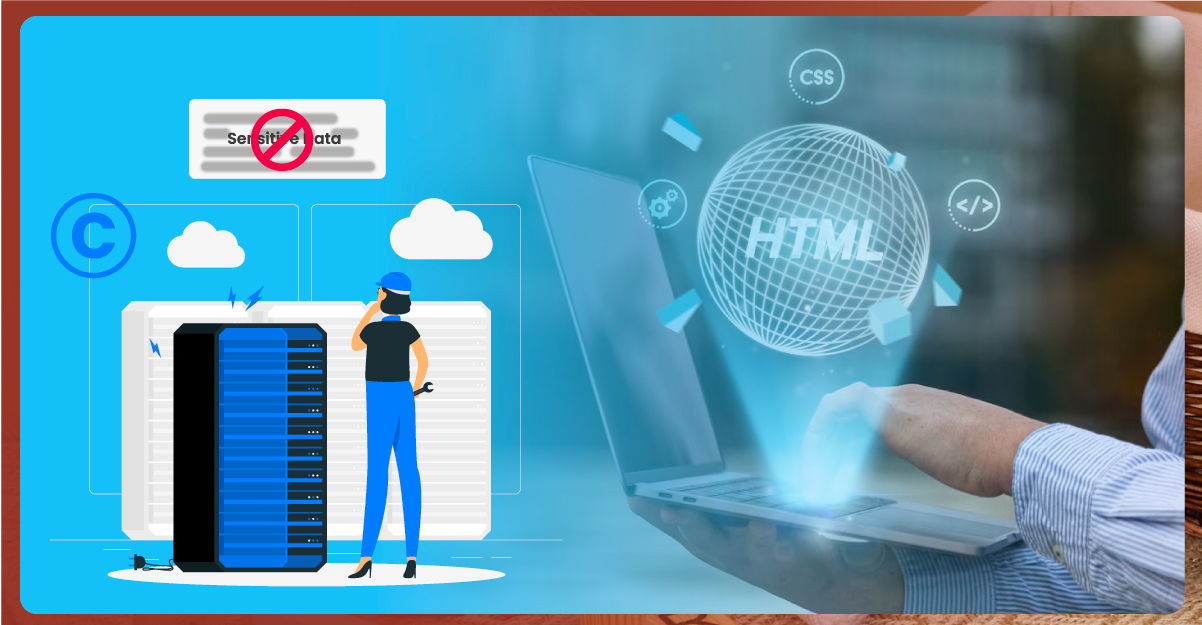

Data has become a critical asset for companies striving to stay competitive in the rapidly evolving beauty and cosmetics industry. With an ever-increasing number of established and new cosmetics brands, businesses need to rely on comprehensive data to make informed decisions about product offerings, pricing strategies, market trends, and customer behavior. One of the most effective ways to gather this information is through Cosmetic Company Data Scraping Services—an automated method of extracting large volumes of data from various online sources. By scraping data from company websites, online marketplaces, and industry directories, businesses can Collect Cosmetic Company Names and Products and gain valuable insights that help them understand the competitive landscape, refine their marketing strategies, and improve customer engagement.

Data scraping involves extracting structured or unstructured data from websites, applications, or online platforms using specialized software or tools. This data can include product descriptions, prices, customer reviews, sales data, and more in the cosmetics industry. The sources of this data range from company websites and e-commerce platforms to industry-specific directories and review sites. Scraping such data provides businesses with a competitive edge, enabling them to optimize operations, improve customer relationships, and increase profitability Sources of Cosmetic Company Data Scraping.
1. Company Websites
A company's website is one of the most valuable data sources for businesses in the cosmetics industry. Websites typically feature detailed product descriptions, ingredient lists, images, pricing information, promotions, and stock levels. Scraping data from company websites allows businesses to keep track of competitors' new product launches, changes in pricing strategies, and the features they emphasize in marketing their products.
For example, if a competitor introduces a new anti-aging serum with a unique ingredient, scraping the product page can give businesses insights into the ingredient's benefits, targeted demographic, and pricing strategy. This data helps companies adjust their offerings and marketing efforts to stay competitive in the market.
2. Online Marketplaces:
Online marketplaces such as Amazon, eBay, Walmart, and specialized beauty platforms like Sephora and Ulta Beauty provide a wealth of data related to product performance, customer preferences, and pricing trends. By scraping data from these platforms, businesses can gain insights into the most popular products, top-selling brands, customer ratings, and reviews.
These platforms also allow businesses to track price fluctuations and promotional activities, helping them to fine-tune their pricing strategies. For example, scraping data on customer reviews can help companies identify product weaknesses and improve their offerings. Analyzing pricing trends can guide businesses in making competitive decisions regarding discounts, bundles, and other promotional strategies.
3. Industry Directories:
Industry directories, such as the Cosmetics and Toiletries Association or business directories like ThomasNet, provide a treasure trove of company data in the cosmetics sector. These directories list manufacturers, suppliers, distributors, and other stakeholders, offering insights into key players, contact details, and partnerships. Scraping data from these directories can help businesses identify new suppliers, potential distribution partners, or acquisition targets.
In addition, industry directories can also reveal emerging trends, such as new entrants into the market or companies focusing on specific niches like eco-friendly beauty products. Scraping these directories allows businesses to track market dynamics, spot trends early, and build better market penetration and expansion strategies.

Cosmetic company data scraping offers valuable insights by extracting real-time product information, pricing trends, customer reviews, and competitor analysis. This data empowers businesses to optimize marketing strategies, enhance product offerings, and stay competitive in the dynamic beauty industry.
1. Market Research and Trend Analysis:
One of the primary benefits of cosmetic company data scraping is the ability to conduct in-depth market research and spot emerging trends. Businesses can identify patterns in customer preferences, popular ingredients, product types, and pricing strategies by analyzing data from company websites, online marketplaces, and industry directories. This enables them to stay ahead of trends and offer products that align with consumer demand.
For example, if data scraping reveals a growing interest in organic skincare products, a cosmetics company can pivot to focus more on natural ingredients and adjust its marketing campaigns to cater to eco-conscious consumers. In addition, tracking the performance of competitors' products can help businesses identify gaps in the market that they can exploit, such as creating products targeted toward specific age groups or skin types. Utilizing Global Cosmetic Company Data Scraping enables companies to gain real-time, accurate insights into these trends.
2. Competitive Intelligence:
Data scraping offers a wealth of information on competitors' product lines, pricing structures, and marketing tactics. With this data, businesses can monitor how their competitors position themselves in the market, which can help them develop more effective strategies. For example, a company may find that a competitor has raised its prices or introduced a new product line, which could influence its pricing decisions.
Moreover, by scraping customer reviews and feedback from competitor products, businesses can gain insights into consumer sentiment and pinpoint areas where they can outperform competitors. This could be through offering better ingredients, a more effective formula, superior customer service, or a more attractive pricing model. Collecting this data can be crucial for companies aiming to develop a Cosmetic Brand Products Dataset highlighting competitive advantages in the marketplace.
3. Pricing and Promotional Strategies:
Price optimization is crucial to success in the competitive cosmetics industry. Data scraping allows businesses to track pricing information across multiple online marketplaces and competitor websites. This data enables businesses to identify pricing trends, assess how their products compare in terms of cost, and adjust their prices accordingly.
Scraping data from promotions, flash sales, and discounts can help companies align their promotional strategies with industry standards. For example, if a competitor runs seasonal skincare product sales, a business can use this information to time its promotional campaigns more effectively. Scrape Cosmetic & Beauty Product Data from multiple platforms to comprehensively understand promotional trends and help businesses strategically plan sales.
4. Customer Insights and Personalization:
Scraping customer reviews and ratings from online marketplaces can provide invaluable insights into consumer preferences and pain points. Businesses can identify the most sought-after product features, ingredients, and packaging designs by analyzing this data. This information can then be used to refine product offerings and marketing strategies to better resonate with the target audience.
Personalization is a growing trend in the cosmetics industry, and data scraping plays a key role. By analyzing customers' buying habits, review patterns, and product preferences, businesses can create tailored marketing campaigns that appeal to specific consumer segments. For instance, if customers consistently purchase anti-aging products, personalized recommendations or special offers can be sent to them, enhancing customer satisfaction and loyalty. Extract Beauty and Personal Care Data to personalize their offerings and stay relevant in a highly competitive market.
5. Supplier and Partner Identification:
For businesses looking to expand their product lines or supply chains, scraping data from industry directories is a valuable strategy for identifying new suppliers, distributors, and potential partners. Businesses can find the right partners that align with their operational needs and ethical standards by accessing detailed company profiles. Furthermore, by scraping information about suppliers' size, location, and offerings, businesses can make more informed decisions when choosing vendors.
By Extracting Top Beauty Products Data, companies can identify potential partners producing high-demand products and align their business strategies accordingly. With the correct data, businesses can expand their partnerships and streamline their supply chains for growth and efficiency.

While data scraping provides numerous advantages, businesses must adhere to legal and ethical guidelines when scraping data from websites, marketplaces, and industry directories. Many websites have terms of service that explicitly forbid automated data scraping, and scraping without permission may lead to legal consequences. Therefore, businesses should always check a website's terms of use and consider seeking permission from site owners before scraping.
Furthermore, European companies should comply with data protection laws, such as the General Data Protection Regulation (GDPR), when collecting customer data. Ensuring that scraped data is anonymized and used responsibly is essential to avoid breaching privacy regulations.
In conclusion, cosmetic company data scraping from company websites, online marketplaces, and industry directories is a powerful tool that can provide businesses with valuable insights to enhance their market research, competitive intelligence, pricing strategies, customer engagement, and product offerings. By using a Cosmetic Company Data Scraper to collect and analyze data from these sources, businesses can better understand market trends, adjust to consumer preferences, and stay ahead of competitors. Additionally, Scrape Ecommerce Data allows companies to track pricing trends, promotional strategies, and customer sentiment in real time. However, it is essential to approach data scraping ethically and legally, ensuring that all data is collected and used in compliance with relevant regulations. Data scraping can give cosmetic companies a significant advantage when used effectively in an increasingly competitive and fast-paced industry.
Experience top-notch web scraping service and mobile app scraping solutions with iWeb Data Scraping. Our skilled team excels in extracting various data sets, including retail store locations and beyond. Connect with us today to learn how our customized services can address your unique project needs, delivering the highest efficiency and dependability for all your data requirements.